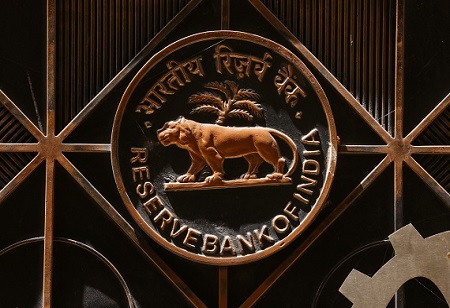
RBI Plans Simplified Authorization Framework for Money Changers

 The Reserve Bank of India (RBI) has suggested streamlining and simplifying the licensing framework for money changers. The goal is to explore new models that can facilitate foreign exchange-related services and address the evolving needs of India's rapidly expanding economy. "Reserve Bank has reviewed the extant authorisation framework under FEMA to improve further the ease with which foreign exchange transactions can be undertaken by users, and at the same time strengthen the regulatory oversight/framework governing APs", the RBI's draft licencing framework guidelines say.
The Reserve Bank of India (RBI) has suggested streamlining and simplifying the licensing framework for money changers. The goal is to explore new models that can facilitate foreign exchange-related services and address the evolving needs of India's rapidly expanding economy. "Reserve Bank has reviewed the extant authorisation framework under FEMA to improve further the ease with which foreign exchange transactions can be undertaken by users, and at the same time strengthen the regulatory oversight/framework governing APs", the RBI's draft licencing framework guidelines say.
The RBI has stated that its aim is to enhance operational efficiency in providing foreign exchange services to the general public, tourists, and businesses, all while ensuring necessary safeguards. The central bank's recent move is a result of the ongoing liberalization efforts under FEMA, the growing integration of the Indian economy with the global market, the digitization of payment systems, and changes in the institutional structure.
The Licensing framework for Authorised Persons (APs) issued under FEMA, 1999, was last reviewed in March 2006. “The (current) review will focus on rationalising the authorisation framework for money changers in view of the widespread availability of banking services to the public and look at alternate models for facilitating foreign exchange-related services", says the central bank.
The new framework will also improve the scope of services offered by AD-Category II entities and review the regulatory framework for APs. The RBI has proposed to introduce a new category of money changers who may conduct money-changing business through an agency model by becoming forex correspondents (FxCs) of category-I and category-II authorised entities. Such entities will not be required to seek authorisation from the RBI. On perpetual authorisation, the RBI says to reduce the regulatory burden and enhance the ease of doing business, it is proposed to renew an existing authorisation as an AD Category-II on a perpetual basis.
In terms of transition, the RBI says existing full-fledged money changers may approach it for upgradation of authorisation as AD Category-II or an existing AD Category-II may approach it for permanent authorisation two months prior to the date of expiry of the existing authorisation. "If the entity approaches the Reserve Bank for renewal of its existing authorisation, such renewal will be considered only up till a date not beyond two years from the date when the new framework comes into force".
The RBI has suggested permitting AD Category-II entities to extend their services to include trade-related transactions, with a transaction value of up to Rs 15 lakh per transaction. In a bid to broaden the accessibility of foreign exchange services, the RBI has introduced a scheme called FCS. This scheme will operate on a principal-agency model, with AD Category-I or AD Category-II authorized entities serving as principals for the FxCs. As part of this arrangement, the FxCs will establish agency agreements with AD Category-I or AD Category-II authorized entities under the FCS.
Significantly, the RBI grants authorization in the form of licenses to authorized persons, encompassing authorized entities and full-fledged money changers (FFMCs). Specific institutions are also authorized to conduct particular foreign exchange transactions aligned with their business activities. In India, there are a combined total of 101 AD Category-1 entities, 75 AD Category-11 entities, and 1,763 AD Category-III entities.